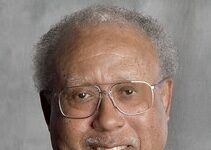 A new study by Kevin Fosnacth, an associate research scientist at Indiana University, and Shannon M. Calderone an assistant professor of educational leadership at Washington State University, finds that Black college students put far less trust in university officials than their White peers.
A new study by Kevin Fosnacth, an associate research scientist at Indiana University, and Shannon M. Calderone an assistant professor of educational leadership at Washington State University, finds that Black college students put far less trust in university officials than their White peers.
The authors analyzed data collected from 8,351 college students enrolled at 29 U.S. colleges and universities across the country. They found sizable trust gaps for Asian and Latino students, relative to White students. However, the magnitude of the differences was up to three times larger for Black students. For Black students, college presidents, provosts, and deans were trusted the least.
The authors informed JBHE of steps that could be taken by colleges and universities to increase trust among Black students. Their recommendations included:
- While many colleges already engage in a range of diversity, equity, and inclusion work, it’s clear this should remain a high priority for institutions seeking changes to both culture and climate. campus diversity and inclusion efforts must be adequately resourced, and prioritized. This may be even more true in a post-COVID world.
- Ensure greater representational diversity on campus.
- Create opportunities and structures that will elevate student voice in campus-wide decision-making.
- Give consideration to the totality of the student experience. What are the high-impact touch points for students throughout their four-six years on campus? How can those touch-points be more meaningful, particularly for Black college students on campus? Transforming student trust is a cumulative, long-term process.
- We also encourage colleges to take intentional steps towards learning more about the state of trust and student well-being on their campuses and within their organizations. Action-oriented authentic learning of this sort will (a) signal to students that colleges see the importance of student well-being as a critical concern for campus decision-makers; and (2) better inform how colleges respond to the stated needs of all students, but particularly students of color.
A draft version of the paper, “Who Do Students Trust? An Exploratory Analysis of Undergraduates’ Social Trust,” may be found here.













What type of convoluted research study is this? For starters, this study is nothing more than another example of two so-called academics who do not hold membership in the “African American” community. Yet, they somehow feel they can capture the true essence, experience, and higher education realities for “African American” college students. Nothing could be further from the truth. The facts remain Calderone and Fosnacht, “African American” college students have to endure implicit, explicit, and institutional White racism at the majority of White colleges and universities due to the innate insecurities of white students and white faculty.
Very well said Michael.
Thanks. What I find most interesting is that “people from other nations” somehow believe and even remotely assume they can tell ‘our story’ better than we can. I would even venture in saying that “people from other nations” continue to enrich themselves fiscally, academically, spiritually, and even physically” off the so-called Black community. No other racial/ethnic group would ever allow this.
Some more sorry ass lip service!